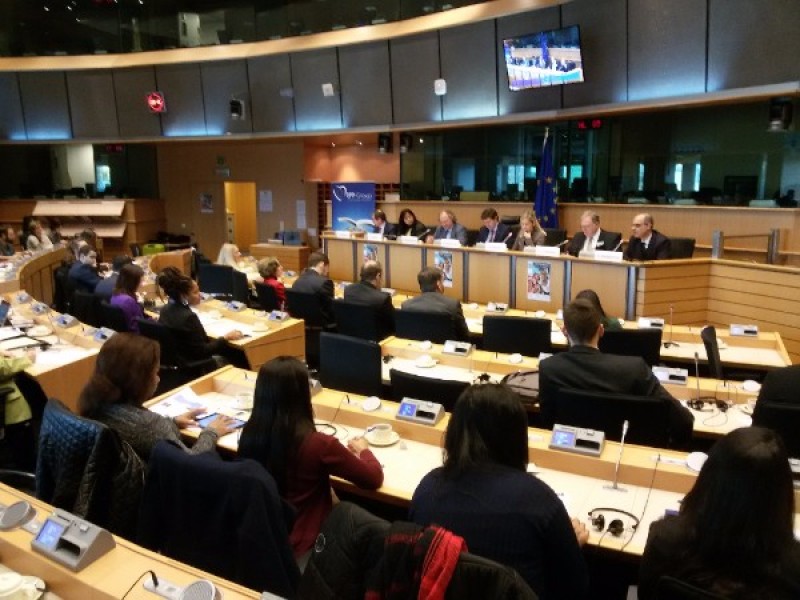Press Release No: 15/51
10 December 2015
Brussels
To mark International Human Rights Day on 10 December, the European Platform on Religious Intolerance and Discrimination (EPRID) and the office of Elmar Brok MEP hosted a panel discussion on religion, security, and human rights at the European Parliament. The Conference of European Churches is a member of EPRID and participated in organising this initiative.
Human rights defenders, scholars, and members of civil society made contributions highlighting a number of key issues. Panellists noted that advancing freedom of religion or belief requires coordinated efforts from a number of sectors. They also emphasised that there is a link between a lasting and just peace and freedom of religion or belief. Dr Kishan Manocha, senior adviser on Freedom of Religion or Belief, Organisation for Security and Co-operation in Europe / Office for Democratic Institutions and Human Rights (OSCE/ODIHR) drew on the Helsinki Final Act to underline the strong link between security and freedom of religion or belief.
Participants also underscored that state or state-authorized violence in response to radicalisation can lead to even more drastic reactions. These responses often go too far and help cultivate resentment, fear, and even suspicion toward religion. Contributors also called for greater religious literacy and sensitivity in response to the current global situation.
UN Special Rapporteur on Freedom of Religion or Belief Prof. Heiner Beilefeldt also contributed to the discussion. He argued that there are often complex motivating factors for violence and extremism, and that it is often difficult to distinguish religious motivations from cultural and political ones. These discussions are complicated by lack of international agreement on the definition of extremism. He also argued for the importance of grassroots movements in supporting freedom of religion or belief. “The United Nations can support—but never replace—the commitments found within societies,” he remarked.
The Conference of European Churches has long supported dialogue on freedom of religion or belief. CEC is contributing to the evaluation of European Union guidelines on freedom of religion or belief and has invited its 114 Member Churches to participate in this process.
Please click here for the programme of the event.
For more information or an interview, please contact:
Erin Green
Communication Coordinator
Conference of European Churches
Rue Joseph II, 174 B-1000 Brussels
Tel. +32 2 234 68 42
Fax +32 2 231 14 13
E-mail: eeg@cec-kek.be
Website: www.ceceurope.org
Facebook: www.facebook.com/ceceurope
Twitter: @ceceurope
The Conference of European Churches (CEC) is a fellowship of some 114 Orthodox, Protestant, Anglican and Old Catholic Churches from all countries of Europe, plus 40 national council of churches and organisations in partnership. CEC was founded in 1959. It has offices in Brussels and Strasbourg.
